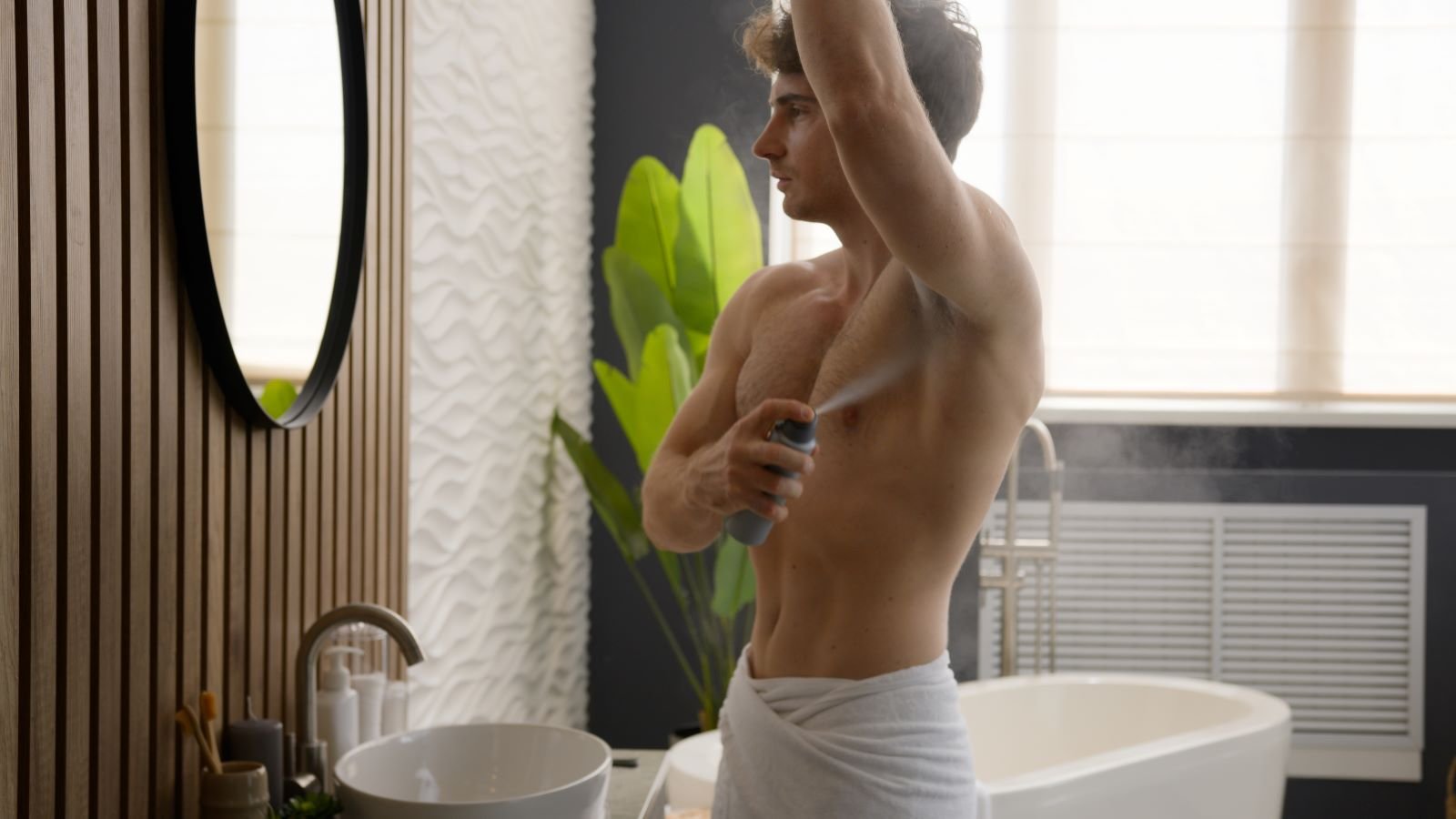Sweating is your body’s natural process. Body odor develops when the sweat mixes with oil and bacteria on your skin. The awful smell of your body can embarrass you in social or professional situations.
The good news is that you can prevent body odor with personal hygiene and lifestyle changes. Check out the tips below:
Bathe Daily

A daily shower prevents the buildup of dead cells, sweat, and dirt on your body. Use an antibacterial soap or body wash to get rid of odor-inducing bacteria. Clean yourself from head to toe at least once a day, depending on the climate and your lifestyle. For instance, you can shower twice a day on hot, humid days and when your routine involves grimy or unhygienic activities.
Dry Yourself With A Towel

After the bath, wipe your skin dry gently with a soft towel. Pay extra attention to genitals, knee pits, elbow bends, neck, and other body parts where you sweat more. Towel drying will absorb water from your skin. It will prevent your body from becoming a breeding ground for sweat bacteria.
Apply Deodorant

Research states that in 2023, Americans bought USD 6.6 billion worth of deodorant, equivalent to nearly USD20 per person—more than in any other rich country.
Deodorants contain antibacterial agents that combat body odor while allowing you to perspire naturally. They give your body a pleasant, fresh scent. It is advisable to choose deodorants that contain natural, organic, or skin-friendly ingredients.
Use Antiperspirant

Some people prefer antiperspirants (skincare products) over deodorants (cosmetic products). Antiperspirants contain aluminum chloride, which blocks your sweat ducts and controls sweating. This way, they offer protection against both sweat and odor. Aim to buy ‘clinical strength’ antiperspirants with more active ingredients in higher concentrations than the traditional over-the-counter ones. You may also request your dermatologist give you a suitable prescription.
Wear Breathable Fabrics

Fabrics such as cotton, bamboo, linen, rayon, silk, chambray, and merino wool are highly breathable. Their texture and composition allow air to circulate through them easily and evaporate moisture from sweat quickly. Their sweat-resistant quality makes you feel dry, cool, and less stinky.
Dress In Clean Clothes

You should change into clean, fresh clothes as often as possible, especially after exercise. Wash your clothes regularly to keep body odor, germs, and bacteria at bay.
Moreover, they make you look and feel good – you don’t have to worry about sweat stains and foul smells.
Care For Your Underarms
Don’t ignore your pits when addressing body odor problems. Underarms are prone to more humidity and a high concentration of sweat glands. Trim, shave, or wax the hair in your armpits at regular intervals to remove trapped bacteria.
Exfoliation and miniaturization can also help in odor management. Wear underarm sweat pads to withstand excessive sweating.
Look After Your Feet

Hot weather, exercise, and hormonal changes are a few reasons for the unpleasant smell from your feet. The medical term for foot odor is bromodosis, and it is quite common among people. Dr. Alicia Canzanese, a podiatrist, recommends keeping feet and toenails clean and changing socks often.
Another podiatrist, Dr. Jessica Milliman, suggests washing and disinfecting shoes as an odor-control option. You can also use footpowder or antiperspirants to ward off the bad smell.
Hydrate Yourself

One sign that you aren’t drinking enough water is the color and smell of your urine. It appears dark and has an ammonia smell, which can be carried by your odor if you ignore proper hygiene and adequate water intake. You also tend to lose water content in your body in the form of sweat.
The right amount of water consumption cools down your body and reduces excessive sweating. Drink more water to flush out odor-causing toxins and waste from your body. The average daily water intake for men is about 15.5 cups and for women about 11.5 cups. However, the quantity may vary according to your age, activity level, outside temperature, and medical conditions.
Adjust Your Diet

Certain foods, such as garlic, onion, asparagus, spices, fish, red meat, and cruciferous vegetables, send your sweat glands into overdrive. They constitute volatile compounds that are excreted through perspiration. Keep a food log to understand the foods that make foul odor linger on your body. Tweak your diet or consult a dietician if necessary.
Reduce Caffeine, Alcohol, and Smoking

It is advisable to consume coffee and alcohol in moderation and curtail smoking. These habits play havoc with your nervous system, blood circulation, and body temperature. They increase sweating and create a distinct nasty smell when they meet bacteria.
Manage Your Negative Emotions

A study was conducted to research the effects of body odor as a form of non-verbal communication. When the participants were subjected to interviews confirmed as stressful by psychological indicators, their skin released an odor similar to stir-fried leeks.
When you are stressed, anxious, or nervous, your body produces smellier perspiration. The sweat glands react differently and become a fertile ground for bacteria growth. Manage your negative emotions through lifestyle changes, meditation, and other mindfulness activities.
Try Natural Remedies

You can treat body odor with natural remedies using ingredients readily available in your kitchen. For example, as they are antibacterial, you can dab tomato juice, apple cider vinegar, or a slice of lemon over your armpits.
Add a little baking soda to your bath water to absorb moisture from your skin. Dunk a green tea bag in warm water and place it on sweaty areas of your body. Green tea contains magnesium, which blocks pores on your skin and minimizes sweating.
Address Medical Conditions

Sweating can occur due to medical conditions such as diabetes, menopause, stroke, tuberculosis, overactive thyroid, etc. Certain medications can also convert your sweat into body odor.
It is advisable to consult a medical professional in case of excessive and unexplained sweating.
